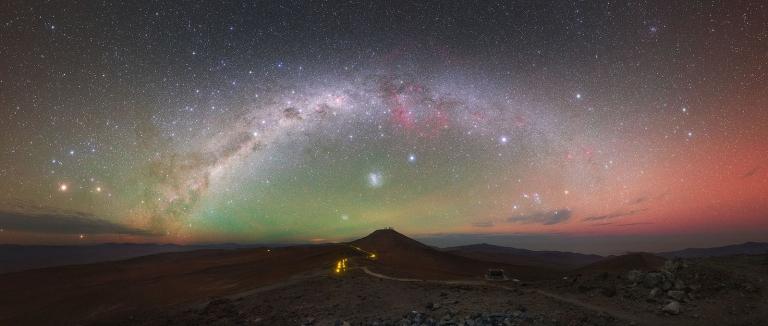
(ESO public domain photograph)
One of the complaints commonly leveled against science focuses on its tendency toward reductionism, toward leaving us with a disenchanted cosmos. Stars are no longer gods, but spheres of burning gas. We know about photosynthesis, but we’ve lost the dryads and hamadryads who once inhabited trees. I’m not altogether sure that I share the complaint or even agree with or sympathize with it, but here it is in three interesting poetic expressions:
1.
Sonnet—To Science
Science! true daughter of Old Time thou art!
Who alterest all things with thy peering eyes.
Why preyest thou thus upon the poet’s heart,
Vulture, whose wings are dull realities?
How should he love thee? or how deem thee wise,
Who wouldst not leave him in his wandering
To seek for treasure in the jewelled skies,
Albeit he soared with an undaunted wing?
Hast thou not dragged Diana from her car,
And driven the Hamadryad from the wood
To seek a shelter in some happier star?
Hast thou not torn the Naiad from her flood,
The Elfin from the green grass, and from me
The summer dream beneath the tamarind tree?
— Edgar Allan Poe
2.
The Horrid Voice of Science
“There’s machinery in the
butterfly;
There’s a mainspring to the bee;
There’s hydraulics to a daisy,
And contraptions to a tree.
“If we could see the birdie
That makes the chirping sound
With x-ray, scientific eyes,
We could see the wheels go round.”
And I hope all men
Who think like this
Will soon lie
Underground.
— Vachel Lindsay
3.
When I Heard the Learn’d Astronomer
When I heard the learn’d astronomer,
When the proofs, the figures, were ranged in columns before me,
When I was shown the charts and diagrams, to add, divide,
and measure them,
When I sitting heard the astronomer where he lectured with
much applause in the lecture-room,
How soon unaccountable I became tired and sick,
Till rising and gliding out I wander’d off by myself,
In the mystical moist night-air, and from time to time,
Look’d up in perfect silence at the stars.
— Walt Whitman
Posted from London, England










